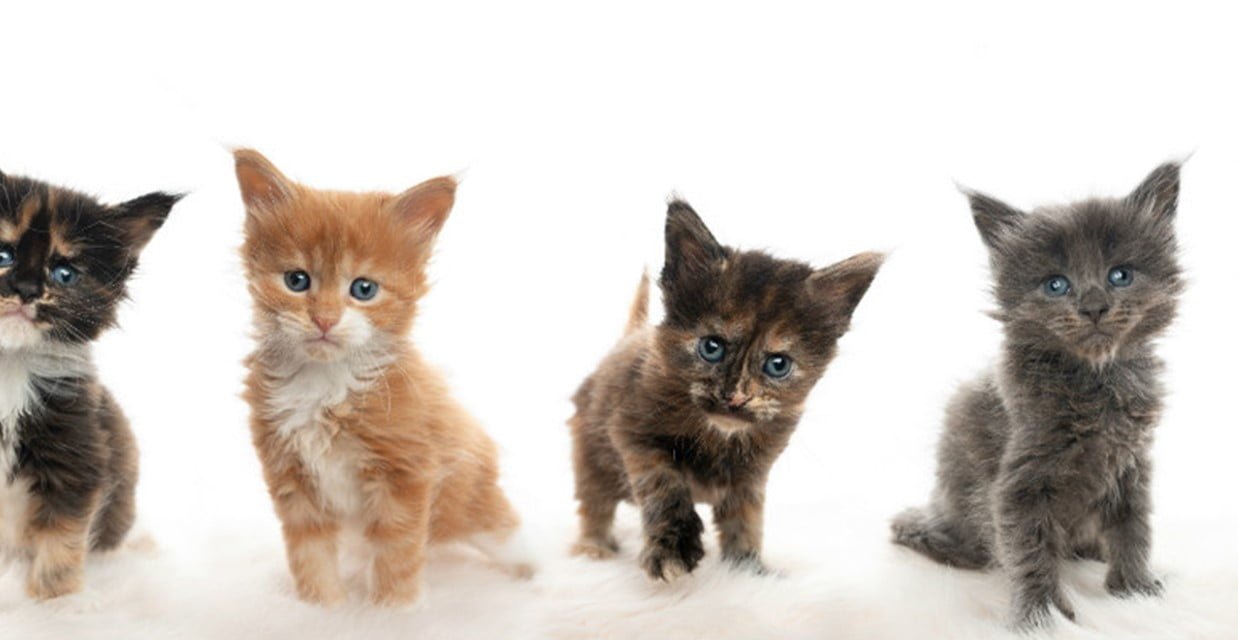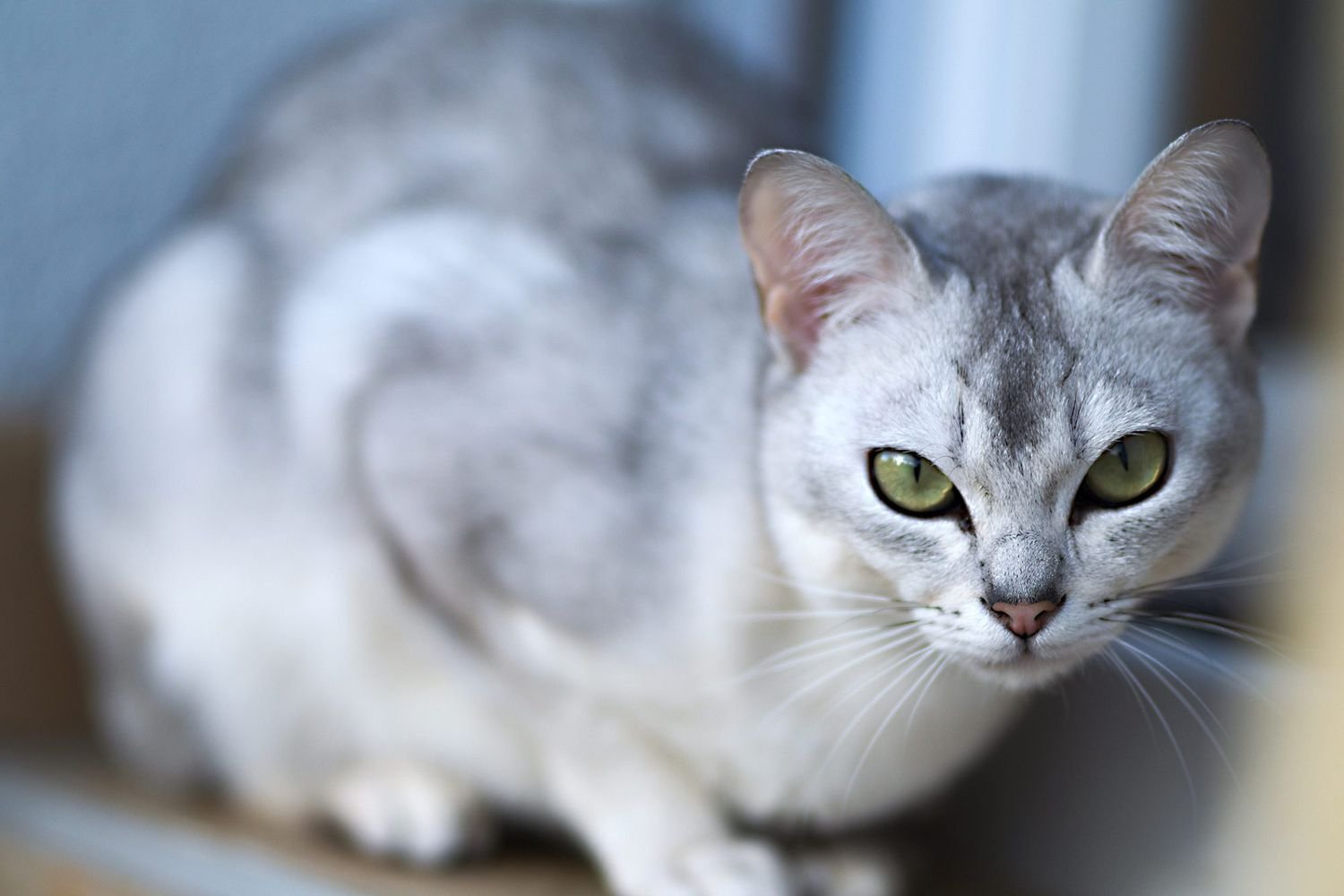The Exotic Shorthair Cat is a breed known for its plush coat and easy-going temperament. This feline often displays a friendly and affectionate nature, making them popular among pet owners.
Originating as a cross between the American Shorthair and the Persian, the Exotic Shorthair boasts the best of both worlds: the Persian’s luxurious coat in a shorter, easier-to-manage length, and the American Shorthair’s athletic build and robust health. These cats typically have a rounded face, short nose, and big, expressive eyes, contributing to their distinctive, often described ‘teddy bear’, appearance.
This breed’s gentle and calm personality makes it an excellent companion, particularly suited for indoor living. Owing to their low-maintenance fur and adaptable nature, Exotic Shorthairs are increasingly favoured by families and individuals looking for a sociable and loving pet. Balancing charm and playfulness, they often become beloved members of any household they grace.
Introduction To The Exotic Shorthair Cat
Welcome to the world of the Exotic Shorthair Cat, a breed that combines the best of two feline worlds. These cats bring the Persian’s charming looks with a simpler coat care routine. Known for their serene nature and cuddly looks, Exotic Shorthairs make perfect companions for those who desire a pet with a big personality but have little time for grooming. Let’s dive into the origins and traits of this delightful feline.
Understanding The Exotic Shorthair Breed
The Exotic Shorthair, often dubbed the “lazy man’s Persian,” is anything but lazy in charm. They display the same gentle face as their longhaired cousins but with a plush, short coat. These cats share Persian characteristics, sporting a compact body, big eyes, and a snub nose.
Their coat comes in many colours and patterns. Their easygoing temperament makes them ideal for households with children and other pets. They require regular health check-ups to maintain their wellness.
The History And Popularity Of Exotic Shorthairs
The Exotic Shorthair’s history dates back to the 1960s. Breeders wanted a cat with a Persian body and a short coat. They crossed Persians with American Shorthairs to achieve this. Over time, the Exotic Shorthair gained recognition and love worldwide. They have grown vastly in popularity due to their Persian features and minimal grooming needs.
Their fame is evident. They consistently rank high in cat fancier circles. The Exotic Shorthair is one of the top registered cat breeds according to cat associations. This fact signals their enduring presence in the hearts of cat enthusiasts.

Essential Care For Exotic Shorthair Cats
Exotic Shorthair cats charm us with their plush coats and teddy bear looks.
To keep these felines healthy and happy, special attention is vital.
Their care involves a balanced diet, regular grooming, lively playtime, and consistent check-ups.
Let’s dive into the specifics of nurturing your Exotic Shorthair cat.
Proper Nutrition For Optimal Health
Quality food fuels your cat’s well-being.
Choose a balanced diet that meets their nutritional needs.
These cats thrive on high-protein, low-grain options.
- Dry kibble for dental health
- Wet food for hydration
- Treats sparingly to avoid obesity
Grooming Needs: Brushing, Bathing, And Beyond
Though their coat is short, regular brushing reduces shedding.
Use a soft-bristle brush.
Occasional baths help to keep their coat shiny.
- Brush twice weekly
- Bath every few months
- Trim nails and clean ears regularly
Exercise And Play: Keeping Your Exotic Shorthair Active
Regular play prevents laziness and weight gain. Make time for daily interaction.
| Activity | Duration | Frequency |
|---|---|---|
| Interactive play | 15 minutes | Twice a day |
| Challenging toys | Varies | Daily |
Regular Veterinary Visits For Preventive Care
Annual check-ups catch health issues early.
Keep vaccinations and parasite control up to date.
- Vaccinations as recommended
- Dental check-ups
- Parasite Prevention

Creating The Perfect Environment
If you’re an Exotic Shorthair Cat owner, you know these furry friends love comfort and security.
Creating the ideal home setup is crucial for their well-being.
In this post, we’ll discuss how to furnish the ultimate cat paradise inside your home.
Comfortable Living Spaces For Your Cat
Exotic Shorthair Cats cherish a cosy spot to lounge in. Here’s how you can arrange a comfortable living space:
- Soft bedding: offer them plush cushions or cat beds.
- Cat trees: a multi-level cat tree provides both play and rest areas.
- Quiet corners: set up a secluded area away from household noise.
The Importance Of Mental Stimulation And Comfort
Keeping your cat’s mind active is essential. Consider these ideas:
- Interactive toys: puzzle feeders and lasers can keep your cat engaged.
- Regular playtime: involve them in games to challenge their instincts.
- Perching spots: install window sills or shelves for bird watching.
Safe Outdoor Access And Enclosures
Outdoor adventures can be thrilling for cats, but safety comes first:
| Feature | Benefits |
|---|---|
| Cat patios (‘catios’) | Enclosed outdoor space for fresh air without risks. |
| Leash training | Gentle introduction to the outdoors with control. |
| Fencing solutions | Prevents escapes; can be added to existing yards. |
Remember: always supervise outdoor sessions.

Behaviour And Socialization

Health Concerns Specific To Exotic Shorthairs
Exotic Shorthair cats charm families with their teddy bear looks and sweet demeanour. Yet, like all breeds, they face some specific health challenges. It’s vital to understand these issues to ensure a happy, healthy life for your Exotic Shorthair.
Recognizing Genetic Health Issues
Exotic Shorthairs can inherit certain genetic conditions that are important to watch for. Polycystic kidney disease (PKD) is one such condition. Regular vet visits are crucial for early detection and management. Heart conditions like hypertrophic cardiomyopathy are also on the list, calling for attentive care and routine check-ups.
Dental Care And Respiratory Health
This breed’s brachycephalic face structure can cause dental and respiratory issues. Brushing your Exotic’s teeth regularly is a must to prevent dental disease. A clean mouth helps keep your cat’s overall health in check. For their respiratory health, watch for any signs of breathing difficulty and consult your vet promptly.
Weight Management And Obesity Prevention
Exotic Shorthairs are prone to weight gain. Obesity can lead to serious health concerns like diabetes and joint issues. Feeding them a balanced diet and engaging them in daily play keeps their weight in check. Regular weigh-ins help track their progress, and your vet can provide a tailored nutrition plan.
| Health Issue | Prevention | Check-Up Frequency |
|---|---|---|
| PKD | Regular vet screenings | Annually |
| Dental Disease | Daily brushing, dental treats | Semi-annually |
| Obesity | A balanced diet, daily exercise | Every vet visit |
- Watch for breathing difficulties due to their flat faces.
- Monitor their weight regularly to combat obesity risks.
- Regular veterinary check-ups are essential for early disease detection.

Long-term Commitment To Your Exotic Shorthair
Embracing the journey with an Exotic Shorthair cat means a deep, enduring commitment. These friendly felines become an integral part of any family. Understanding the care they require through various life stages is crucial. Their distinctive faces and calm demeanour make every moment special.
The Lifespan Of Exotic Shorthairs And Senior Care
Knowing the potential longevity of your Exotic Shorthair helps in planning for their future. With proper care, these cats can enjoy a life of 12 to 15 years. As they grow older, regular veterinary check-ups become vital. A balanced diet and adequate exercise maintain their health.
Adapting Care For Aging Cats
- Comfortable bedding to soothe ageing joints
- Accessible litter boxes with low sides for easy entry
- Gentle grooming to maintain coat health without stress
Modifications in the home environment support their ageing process. Monitor changes in behaviour, as they may indicate health issues.
The Emotional Bond: Enriching Your Lives Together
The connection with an Exotic Shorthair is deep and fulfilling. As these cats age, they become even more affectionate and dependent on their human companions. Quality time and interactive toys keep their minds active. Celebrating each milestone together strengthens the bond.

Frequently Asked Questions On Exotic Shorthair Cat
What Is An Exotic Shorthair Cat?
The Exotic Shorthair Cat is a breed with a calm, affectionate personality. They have a plush, short coat resembling the Persian breed but require less grooming. They maintain kitten-like playfulness into adulthood, making them popular pets.
Are Exotic Shorthair Cats Good For Families?
Yes, Exotic Shorthair Cats are excellent family pets. They’re known for being sociable and gentle, which suits households with children and other animals. They thrive on interaction and can integrate well into a family setting.
How Much Grooming Do Exotic Shorthairs Need?
Exotic Shorthairs need moderate grooming. Their dense coats require regular brushing, at least twice a week, to avoid mats and tangles. They need less grooming than Persians, making them a convenient choice for busy pet owners.
Can Exotic Shorthair Cats Have Health Issues?
Like all breeds, Exotic Shorthairs can have health issues, especially related to their brachycephalic faces, such as respiratory problems. They can also inherit Polycystic Kidney Disease (PKD). Regular veterinary check-ups are important for early detection and management.
Conclusion
The Exotic Shorthair cat truly stands out in the pet world. With its plush coat and affectionate nature, it’s a breed that exudes charm. Perfect for families or single owners, their low-maintenance yet loving demeanour makes them an ideal companion.
Embrace the joy and companionship an Exotic Shorthair can bring into your life.












